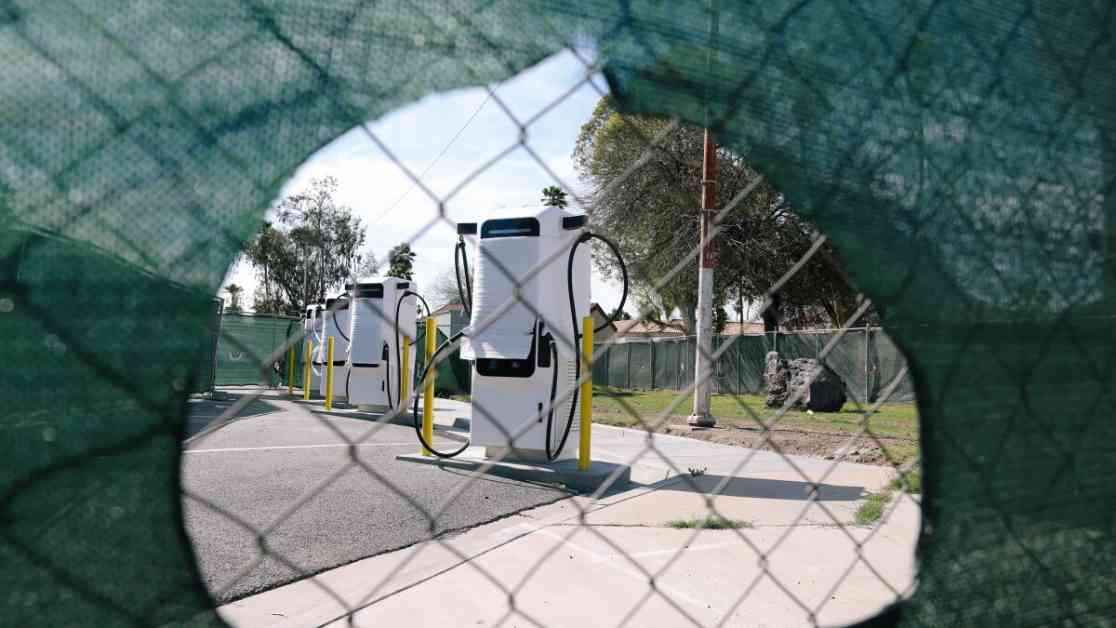The Trump administration is intensifying its dispute with California over the fate of gas-powered vehicles in the United States, devising a strategic move with congressional Republicans to revoke California’s long-standing authority to set a national fuel-efficiency standard. This legislative maneuver aims to strip California of its decades-old waiver that grants the state significant influence over mileage standards. Discussions are currently underway about utilizing the Congressional Review Act, which allows lawmakers to nullify government regulations within a specific timeframe with a simple majority.
For over 50 years, automakers have adjusted their production lines to comply with California’s stringent mileage standards, driven by the state’s market size and the industry’s preference for stricter fuel efficiency regulations. This trend has persisted through various administrations, as the federal government has acknowledged California’s unique air pollution challenges. The Environmental Protection Agency (EPA) has granted waivers under the Clean Air Act to allow California to establish anti-pollution standards that exceed federal requirements.
Molly Vaseliou, the EPA’s associate administrator for public affairs, highlighted the national impact of California’s waivers, emphasizing that when the EPA grants a waiver, every state has the option to adopt California’s regulations instead of federal guidelines. This underscores the widespread implications of California’s environmental policies, extending beyond the state’s borders. Governor Gavin Newsom expressed his lack of surprise at the administration’s stance, noting the longstanding efforts by Republican administrations to undermine California’s waiver and pollution standards.
California’s Ambitious Goals and Controversial Waiver
One of California’s most ambitious objectives, backed by Governor Newsom, is to prohibit the sale of new gas-powered vehicles in the state by 2035. While federal regulators under President Biden endorsed this goal, the EPA’s decision to allow 11 other states to align with California’s strict air quality rules has sparked controversy. Republicans argue that these rules effectively establish national policy due to the significant share of car sales in those states.
Lee Zeldin, the EPA’s administrator, recently presented the waivers to Congress, criticizing the Biden administration for failing to provide clarity on California’s waivers. Representative Kevin Kiley announced plans for a resolution to challenge the waiver, emphasizing the importance of preserving Californians’ freedom to choose their vehicles.
Legal Challenges and Environmental Concerns
The Trump administration’s actions have raised legal questions regarding the California waiver, with the California Air Resources Board questioning the legality of the EPA’s maneuvers. This unprecedented move by the Trump administration diverges from past practices under both Democratic and Republican administrations, prompting scrutiny and opposition from environmental advocates.
Despite the consensus among the world’s scientific community on the role of human activity in climate change, Trump and other Republicans have expressed skepticism. These diverging viewpoints have shaped the regulatory landscape surrounding vehicle emissions, with California’s leadership role facing significant challenges during Trump’s tenure in the White House.
In conclusion, the battle over gas-powered vehicle regulations underscores the complex interplay between federal and state authority in shaping environmental policies. As California seeks to uphold its stringent standards, the ongoing conflict with the federal government illuminates broader debates on climate change, emissions control, and regulatory oversight in the automotive industry. The outcome of this dispute will have far-reaching implications for environmental protection and public health across the United States.


